Rice industry: Lack of branding hurts Pakistan, India moves ahead
Requires investment and patience; Pakistani exporters seemingly unwilling .
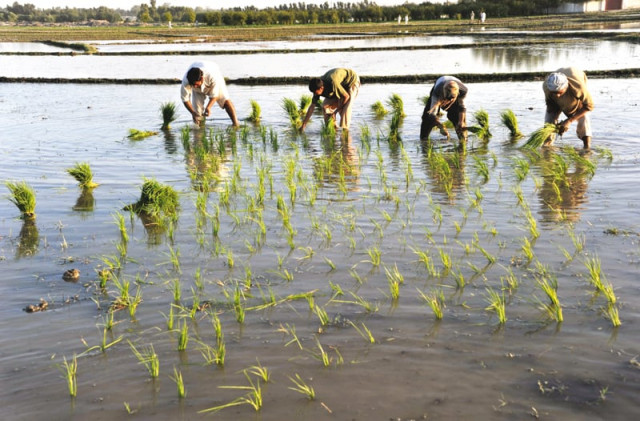
Most rice exporters are reluctant and hesitate in accepting the challenge of launching brands that would invariably fetch better returns.
As a result, Pakistan has been unable to retain its highest-ever export volume of basmati rice achieved in fiscal year (FY) 2010-11.
The country’s rice exports increased during the last few years in terms of value not due to higher volumes but because exporters have been able to get a better price for basmati rice. In FY14, exporters got a record average price of basmati rice in the international market.Pakistan exported $1.85 billion worth of rice in FY14 in which basmati’s share was just $846 million.
However, the situation in the non-basmati rice category is even worse as its brands are almost non-existent.
Is it that difficult to launch a brand or is it just incompetence and complacency?
Experts talk
Successful exporters, who have been able to brand well, have mixed views.
“I used to export basmati rice in bulk,” said Jawed Ali Ghori, managing director at Matco — arguably the country’s biggest basmati exporter. “Over time, I realised that I wasn’t getting the right price and was also playing in the hands of importers who used to misuse their position.”
Ghori is the second generation in the rice business, which was set up by his father 50 years ago in 1964. Today, Matco exports rice to over 65 countries while its flagship brand Falak is sold in over 35 countries.
“Since, I was exporting rice in bulk without branding, I was like any other rice exporter to importers. They used to cancel large deals over a small price difference, which would be as small as $10 per ton. That attitude of importers compelled me to make my product stand out.
“After decades of bulk rice exports, I launched my own brand a decade ago and after a few years of struggle, I am getting the price I want.”
Industry officials say that Pakistan exports most of its rice with no proper processing or packaging, losing out on millions of dollars every year.
“Rice exports in bulk quantity definitely dents the export earnings of Pakistan,” said Engro EXIMP Chief Executive Abdul Samad Khan said.
Engro EXIMP is the subsidiary of Engro Corporation – one of the largest conglomerates in Pakistan – that started its rice business in 2010. Its basmati brand ‘Rymah’ is now available in many countries. The company’s rice sales, including exports, touched 58,500 tons in 2013, up 50% compared to 39,000 tons in 2012.
“Pakistan’s basmati rice exports have declined due to the success of Indian brands in the international market, but we can fight to regain the market share if we introduce good quality brands and invest in them,” he added.
Khan informed that the leading branded basmati rice exporters are getting around $500 per ton higher than the non-branded basmati rice exporters. After taking out all the other expenses including packaging, leading Indian basmati rice exporters are easily pocketing $300 per ton due to branding. In FY14, Pakistan exported 733,860 tons of basmati rice worth $846 million out of which only around 70,000 tons were branded — not even 10% of the total basmati exports.
Why is Pakistan far behind its competitors?
Industry officials say lack of professionalism is one of the reasons behind the low exports. Rice is still part of the small and medium size industries with only a couple of players.

Indian companies crossed that bridge many years ago and have professional managers handling their business who know how to build and manage brands, said Khan.
“Brand building requires investment and patience. The rice sector in Pakistan has generally not been willing to make that investment,” he stressed, adding that the industry also does not possess the scale to be able to afford the kind of investment required.
What it takes to develop a brand?
According to Khan, a good brand-building effort can take a minimum of around two to three years in the international market. It requires introduction in at least six to seven markets in the Middle East and investment during the brand-building period.
The concepts in launching a domestic or international rice brand are almost the same, but the execution for each market is different, he said, adding that the company has to invest in market research separately to gauge consumer product and price preferences, find the right distributors, and ensure placement.
the writer is a staff correspodent
Published in The Express Tribune, August 25th, 2014.
Like Business on Facebook, follow @TribuneBiz on Twitter to stay informed and join in the conversation.


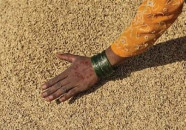
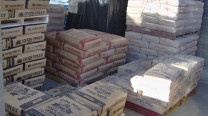
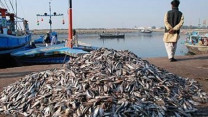
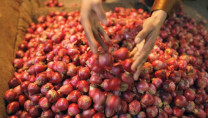













COMMENTS
Comments are moderated and generally will be posted if they are on-topic and not abusive.
For more information, please see our Comments FAQ